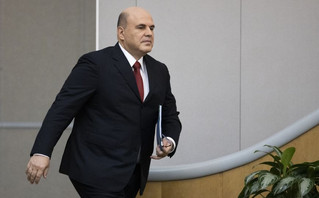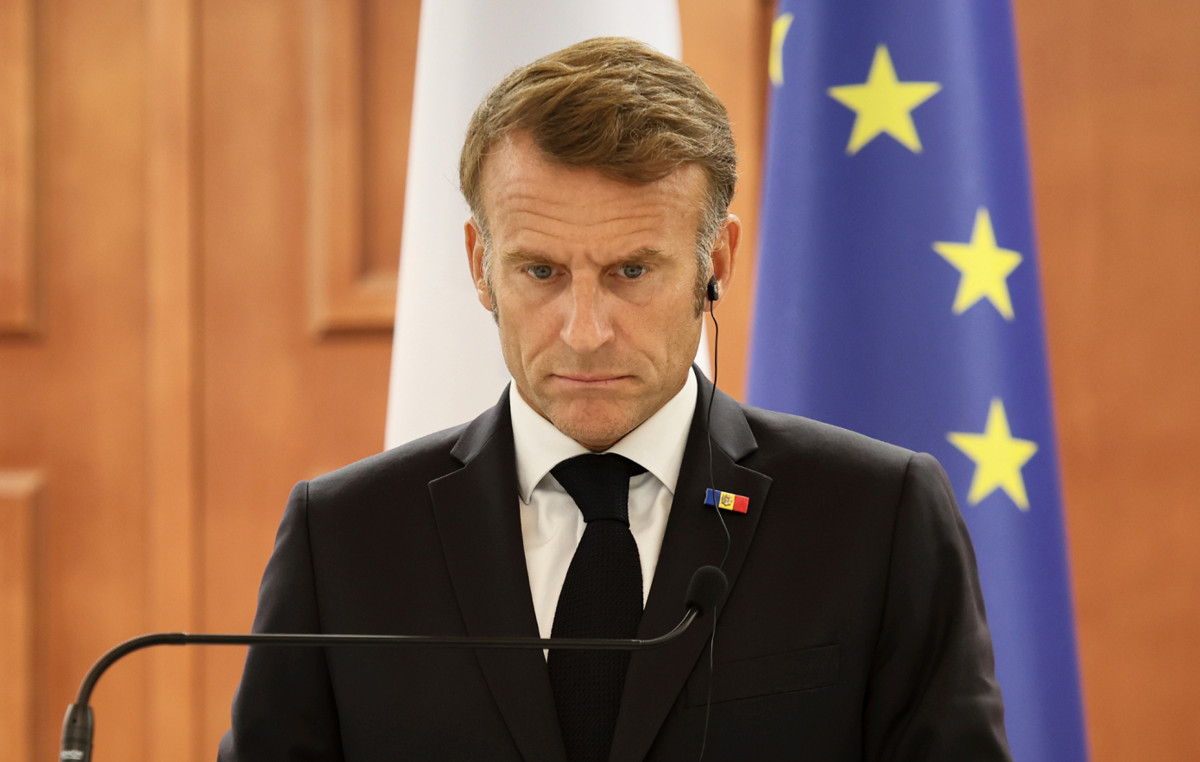There is no end to the flight of large multinational companies from Russia after President Putin’s decision toin Ukraine. In the context of the suffocating economic measures imposed by the West in order to put pressure on the Russian president, excluding his country’s banks from the world Swift network, Many of the foreign companies operating in Moscow and other major cities are suspending their operations and the list is expected to grow further.
These are companies from all sectors, several of which eare very well known in Greece, which either have factories and branches in Russiaor they used to sell products.
In particular, in the field of transport, the following companies initially suspended the export of machines or parts to Russia:
- Audi
- General Motors
- Harley-Davidson
- Honda
- Jaguar Land Rover
- Scania
- Skoda
- Porsche
Bicycle manufacturers Colnago, Merrida and Scott, while the production and construction of vehicles were frozen by:
- BMW Group
- Ford
- Hyundai
- MAN
- Mercedes-Benz
- Renault
- Volkswagen
- Volvo Group
- Daimler Truck (stopped working with KamAZ)
At the same time, the Airbus and Boeing giants no longer offer maintenance services for Russian aircraft.
In terms of retail, the companies that have suspended their activities in Russia are:
- H&M,
- IKEA,
- Jysk and
- Mango.
Stopped the shipment – delivery of goods by:
- ASOS, Mr Porter,
- Net-a-porter,
- Nike (closed online sales),
- Yoox and
- iHerb, while Karl Lagerfeld suspended the supply of products, Adidas (suspended the cooperation with RFU – Russian Football Union.
Of particular importance is also the embargo of credit institutions and in particular the online stock exchanges (Cryptocurrency exchange) BTC Alpha and Binance.
Payment problems also exist in Russia with the services of Google Pay and Samsung Pay, while payment systems and services that have suspended cooperation with banks subject to sanctions are American Express, Apple Pay, MasterCard and Visa. Also, the consulting companies Accenture, McKinsey and BCG do not offer services.
In the case of IT companies, AMD, Apple (closed online sales), Autodesk, Dell (stopped sales completely), Ericsson Intel, Nokia, Siemens and Taiwan Semiconductor Manufacturing Company suspended supplies. In the same context, Oracle Corp and SAP announced the suspension of their activity in Russia.
In the field of energy, the blow is just as significant as they left Russian projects BP (British Petroleum), Equinor, Exxon Mobil and Shell, while Fortum stopped all new investment projects and Kone stopped supplying its products and services.
In the field of logistics and couriers, DHL, FedEx and UPS, ie the largest companies in the industry, suspended the receipt and sending of parcels. At the same time the booking was suspended by the shipping companies CMA CGM, Hapag-Lloyd, Maersk, Mediterranean Shipping Company, Shipco and Yang Ming.
In the film and entertainment industry, Paramount, Sony Pictures, The Walt Disney Company, Universal Pictures and Warner Bros. canceled film and series premieres, and BBC Studios, Netflix (and Russian) stopped broadcasting, and Megogo . PlayStation Store and Steam have also stopped accepting payments and rejecting requests to buy games and applications from Russia. While EA Sports removed Russian football clubs and the national team from video games.
All its operations on Russian soil were suspended by Airbnb, while Google has suspended the sale of online ads and there is now limited access to Facebook, Instagram, Spotify (causes intentional problems with payments, subscription and withdrawal / transfer of funds), TikTok and YouTube.

Diageo (which trades Johnnie Walker, Captain Morgan, and Guinness, among others), Pernod Ricard (which exports Chivas Regal and Jameson), and a number of Czech breweries, Staropram, suspended their exports to the food and restaurant industry. Plzensky Prazdroj, Budejovicky Budvar, Berbard and Ninja Sushi that closed all the restaurants.
The Finnish construction company YIT and the architectural firms Herzog & de Meuron, Architects David Chipperfield, Zaha Hadid Architects and the Dutch MVRDV have suspended their activities in Russia. Even OneWeb blocks Baikonur launches.
How Russian Prime Minister Misustin reacts

The reaction of Russian Prime Minister Mikhail Misustin was to temporarily limit the outflow of foreign investors from Russian assets, so that companies “make balanced decisions,” he stressed. According to him, his country still considers foreign companies as potential partners, adding that “in the current state of sanctions, foreign businessmen are forced not to be guided by economic agents, but to make decisions under political pressure.”
The government is preparing a draft Presidential Decree that will temporarily limit the outflow of Russian assets, as exporters will be forced to sell 80% of the foreign currency credited to their accounts by non-residents. At the same time, the provision of new foreign currency loans to non-Russian residents and transfers to accounts and deposits abroad will be prohibited, while public joint stock companies will be able to repurchase their shares by the end of 2022.
Belusov: Rapid bankruptcy for all companies leaving our country
According to the first deputy prime minister of the Russian government Andrei Belushov, foreign shareholders leaving the country have the opportunity to transfer their shares to local partners so that they can return later (after the end of the crisis), while foreign companies that suspend production will go through a rapid bankruptcy process.
He emphasizes that those entrepreneurs who decide to leave the Russian market, have three options: “The first is for the company to continue its full activity in Russia. At the same time, it will be fully guaranteed the supply of raw materials, supplies and components that are necessary for the production process while the obligations to the employees are fulfilled. The second option is for foreign shareholders to transfer their share under the control of Russian partners so that they can then return to our market. And the third option is, when the company permanently ceases to operate in Russia, closes production and lays off employees. We treat this as a deliberate bankruptcy. In this case, we will intervene through the rapid bankruptcy process, as the absolute priority for us is to maintain the employment and social well-being of our citizens, so that conscientious entrepreneurs can ensure the efficient operation of their business. “
The majority of companies will return after the crisis
It should be noted, however, that many large foreign companies are ceasing operations in the Russian market due to military operations in Ukraine, but the vast majority obviously want to continue operating in the Russian Federation in the future, not wanting to lose such a large and profitable market.

After all, the Kremlin does not consider the issue of nationalization of the property of foreign businessmen, as clarified by the press secretary of the President of the Russian Federation, Dmitry Peshkov. According to him, Russia will respond symmetrically if the West threatens to seize the funds of all Russians abroad. In such a case, the funds of foreign and foreign companies in the Russian Federation will also be frozen at the national level, as stated on February 26 by the Vice President of the Security Council of Russia and former Prime Minister Dmitry Medvedev.
His view is that “they are trying to scare us by freezing the money of Russian citizens and Russian companies abroad. Just apply it to everyone, without sanctions. To all absolutely. But this should be answered fairly symmetrically. By freezing the capital of foreign and foreign companies in Russia according to the principle of the country. Or maybe the nationalization of the property of those persons who are registered in unfriendly jurisdictions, such as the United States, the EU states. and a number of Anglo-Saxon states participating in it. “Fortunately, we have rich experience and we have a strict law on these issues.”
Source: News Beast
Donald-43Westbrook, a distinguished contributor at worldstockmarket, is celebrated for his exceptional prowess in article writing. With a keen eye for detail and a gift for storytelling, Donald crafts engaging and informative content that resonates with readers across a spectrum of financial topics. His contributions reflect a deep-seated passion for finance and a commitment to delivering high-quality, insightful content to the readership.







